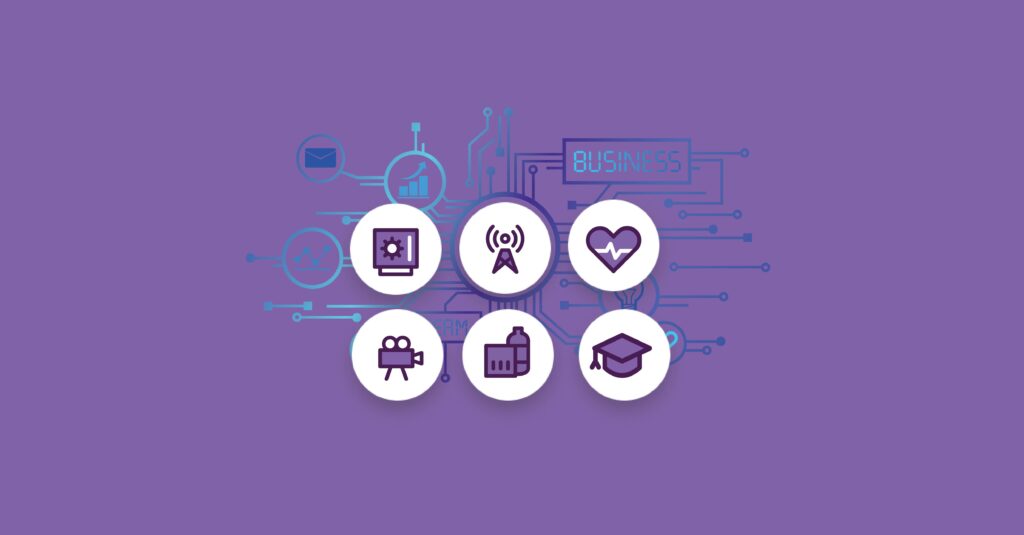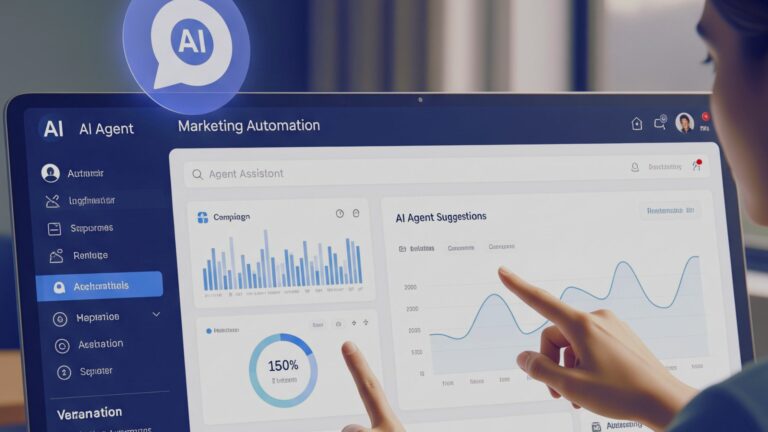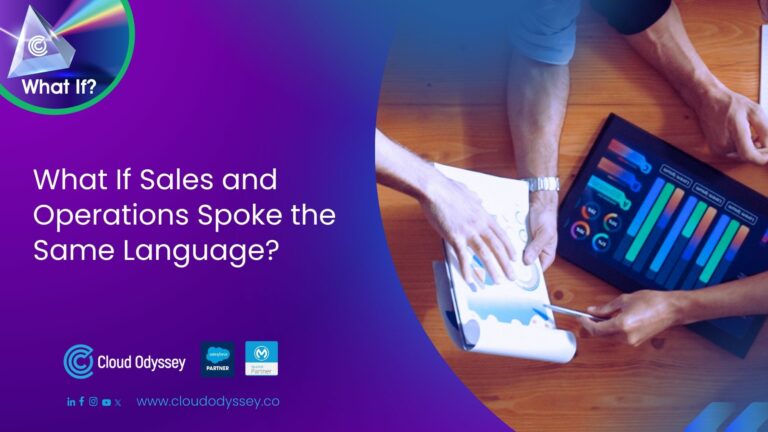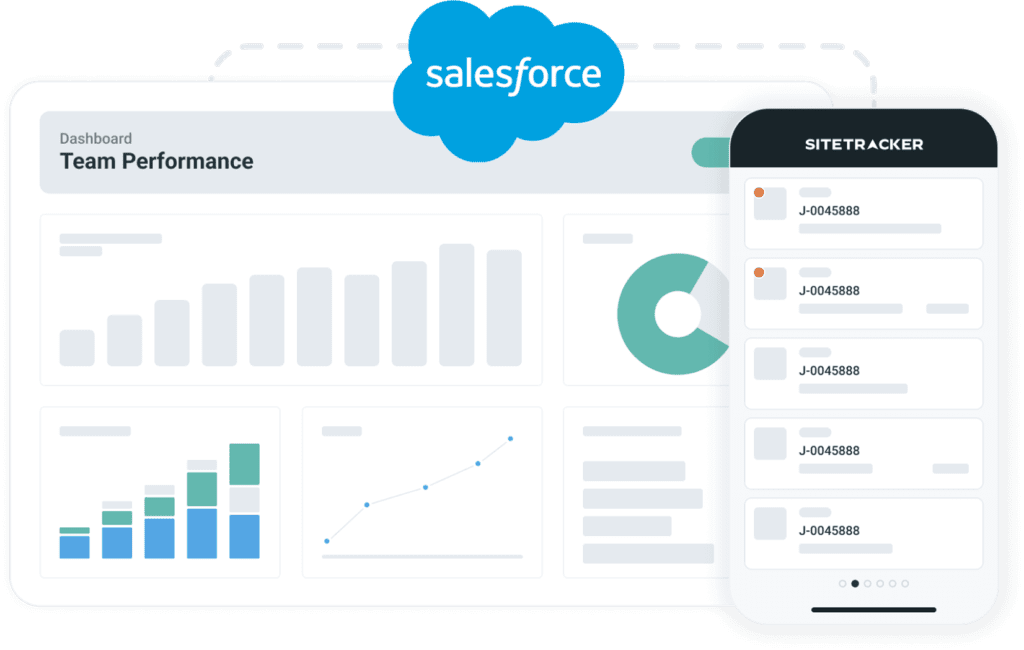To succeed in the industry, organisations must build relationships with their customers and ensure loyalty. The Salesforce Industries suite of products enables enterprises to meet their unique needs across a variety of industries, including education, manufacturing, healthcare, tourism, and many others.
What is Salesforce?
In the world of customer relationship management, Salesforce is one of the top developing companies. Halsey Minor, Parker Harris, and Marc Benioff founded this cloud-based CRM company in San Francisco in 1999.
Salesforce provides services to businesses worldwide to automate marketing, sales, customer service, and a host of other operations. The company’s tools assist its clients in managing and optimising their workflows effectively so that they can generate more revenue.
Salesforce CRM is the most popular in all industries and is especially popular among mid-sized companies in the software, manufacturing, and business services sectors. Salesforce is used by medium-sized organisations that generate revenue between $1 and $50 million a year, with 63 percent being software companies, manufacturing companies, and business service providers.
According to the research, Salesforce CRM users put a lot of emphasis on sales and marketing, with marketing and sales teams present four times more often. Companies in these segments also possess well-equipped customer service departments. It is commonly said, “There is a reason why 68% of high-performing small businesses use marketing automation”.
The importance of Salesforce CRM for businesses
Salesforce CRM was developed to make employees’ workspaces accessible from any device. It does not require any infrastructure to be bought, managed, or set up. All you have to do is create an account, provide Salesforce login details, and you’re ready to go.
You can manage every aspect of your company with Salesforce, including sales leads, customer support tickets, channel marketing campaigns and web analytics, anytime, anywhere, using any computer or mobile device.
The Salesforce Industries suite of products is built on Salesforce Customer 360, a scalable, unified, and adaptable platform designed to make them more accessible and usable for end-users.
Salesforce’s industry-specific solutions allow businesses to increase ROI and accelerate digital engagement. There are 12 products available from Salesforce that can assist companies with running their daily operations.
What are the different industries Salesforce caters to?
Organisations of all sizes and types can use a wide range of Salesforce platforms, solutions, and tools. Here, we will examine the sectors and industries where Salesforce has the greatest impact.
Whenever we refer to Salesforce as being the best CRM system, we are referring to not only its many features but also its flexibility and customization abilities. If Salesforce is seen as a platform solely for sales departments, it would be a mistake.
When we discussed other Salesforce clouds, we discussed this topic as well. Which industries does Salesforce serve? That’s what we will discuss today. What types of industries does Salesforce offer specific solutions for? What role does digital transformation play in our dealings with Salesforce?
Salesforce Industries has a suite of twelve products specifically designed for each industry. Businesses can utilise these products to streamline workflows and generate more revenue through the use of various tools such as analytics, service automation, forecasting, and so on. In Salesforce’s words, businesses need to have “products tuned to their industries.” Following is a list of Salesforce’s industries’ product ranges.
1. Financial Services Cloud
A Salesforce service called FSC provides users with real-time access to customer information like customer profiles, previous purchases, history, and much more, making it possible for organisations to build strong customer relationships. Strong customer relationships ensure more revenue generation.
Relevant insights enable users to adjust their sales practises based on customer needs. Automated progress tracking and commercial lending automation capabilities enable banks to streamline the process. This Salesforce solution has helped Lake City Bank, one of the foremost banks in the United States, increase the efficiency of its operations.
By utilising artificial intelligence, Financial Service Cloud allows banks and financial institutions to provide customised solutions for real estate, investment banking, and more.
Among the benefits of the Salesforce Financial Services Cloud are:
- A better understanding of customers
- Improve customer engagement through intelligence
- Create a unified customer experience
- Improve relationships between policyholders and insurers
- Simplify the mortgage lending process
- Streamline the mortgage application process
- Improve client decision-making and speed
- business growth
2. Salesforce Communication Cloud
Using Salesforce Communications Cloud, users can communicate effortlessly with B2C, B2B, and wholesale companies with prebuilt communications capabilities and data models. With the Communications Cloud, you can create highly customised BSS (basic service sets) in compliance with telecom standards.
By using the service, businesses can quickly offer personalised offers to their customers, increasing their visibility and engagement in the digital space. Personalised SMS and emails are automated using artificial intelligence to improve customer satisfaction. Additionally, the service has predictive analytics capabilities to assist users in making more informed strategic decisions.
3. Salesforce Health Cloud
Salesforce has developed a software solution called Health Cloud to serve the CRM requirements of companies engaged in the health and life science industries. Health Cloud by Salesforce is HIPPA-compliant, ensuring the highest level of security for patient information.
Users of the platform can offer personalised healthcare to patients and seamlessly connect with them. A single screen allows healthcare providers to view important patient information, such as appointment histories and ongoing medications, all in one place, helping them communicate with patients more effectively.
Automating several operations, such as sales and accounting, has benefits not only for healthcare institutions but also for pharmaceutical, medical technology, and medical equipment manufacturers.
Organisations in the health sector can achieve better results using the Health Cloud by:
- Take care of those who work behind the scenes.
- an experience by building trust among the team members
- As a catalyst for better innovation and faster results
- Create faster and more patient-centric solutions and services
- and more
4. Salesforce Media Cloud
Salesforce carefully crafted the Media Cloud to meet the requirements of media companies. Using Media Cloud, one does not have to know coding to perform various tasks. It contains a series of data models and user interfaces designed specifically for the media sector, allowing users to streamline their processes.
As part of their advertising campaigns, Media Cloud provides key metrics about target audiences, customer histories, and various other features that help companies increase revenue and customer value. Media Cloud’s features, such as automated pricing and discounts, can help companies increase ad revenue. By utilising artificial intelligence, companies can generate accurate and insightful customer predictions.
5. Salesforce Philanthropy Cloud
Salesforce developed Philanthropy Cloud to create a global platform that will enable employees and businesses to work with nonprofits. Corporate social responsibility services offered by the cloud have been designed to manage the responsibilities of businesses effectively. The Philanthropy Cloud lets users track the impact of their organisation on the community as well as its progress towards sustainable growth.
It also allows the human resources and corporate social responsibility departments of companies to efficiently plan and manage fundraising activities and volunteer opportunities. Small and large businesses use the platform to increase the impact of their charitable endeavours. The Philanthropy Cloud offers users the capability to manage corporate social responsibility initiatives and grants. Customised reports can be generated to keep track of ongoing charitable campaigns.
The Philanthropy Cloud helps organisations do the following:
- Assess and analyse the social impact of their activities
- Foster an impact-oriented culture
- Encourage employees to get involved with causes they care about
- Create a custom philanthropy programme for the company
6. Salesforce Consumer Goods Cloud
Utilising Salesforce’s industry-specific tools and features, this service helps consumer goods companies boost growth rates and ROI. Various enterprises in many sectors are using the Consumer Goods Cloud, including food, beauty, and personal care. Through its insights, Consumer Goods Cloud enables businesses to handle their trade promotion and funding effectively. Route planning and real-time tracking are both possible with it. It will display necessary updates on new developments.
Hyperconnected markets facilitate two-way communication between producers and consumers. All of these steps in the sales process are fully customizable with Salesforce. Similarly, data control enables closer customer relationships and improved production management.
Online shopping has disrupted this sector for a long time, but innovation is continuing to bring customers a fluid and amazing experience. A 360-degree view of the customer is available to stores through Salesforce tools. Additionally, the solution allows clients to combine the physical and digital worlds through a consistent experience across all devices, channels, and points of contact.”
Using consumer cloud, businesses can:
- Target consumers to the right stores (and at the right moment)
- Increase store productivity
- improve audit accuracy with artificial intelligence
- increase in-store sales by capturing orders through mobile devices
7. Salesforce Manufacturing Cloud
Salesforce Manufacturing Cloud is a powerful platform designed to help manufacturers optimize their operations, improve customer satisfaction, and drive growth. It helps businesses manage their entire book-of-business and customer service lifecycle while increasing collaboration and transparency between sales, operations, and partners.
Benefits of using Manufacturing Cloud for your business include:
- Track production schedules, inventory, and quality metrics to spot issues and boost efficiency.
- Manage shipments, supplier relationships, and risks more effectively.
- Forecast demand, find new market opportunities, and tailor customer interactions.
- Integrate CRM data with field service to help technicians resolve issues quickly.
- Schedule technicians based on location and skills to reduce downtime and increase satisfaction.
- Automate key processes like order management and revenue forecasting.
- Simplify communication and transactions with partners.
- You can use real-time analytics for actionable insights into your business performance.
8. Salesforce Education Cloud for K-12
A Salesforce service called Education Cloud combines all teachers’ and students’ needs onto a single website that allows students to learn in the cloud while also allowing schools and colleges to manage their operations more efficiently.
A student’s data is stored and analysed in the Education Cloud for use by colleges and universities during admissions and recruiting procedures. It allows institutions to connect students and departments across campus so that they can work together seamlessly. Based on Salesforce data, this platform is capable of increasing student engagement by 40% and staff productivity by 80%.
9. Salesforce hospitality and travel
Salesforce specifically created the service for the travel sector to give businesses the ability to offer individualised service to boost customer retention and satisfaction. Using Salesforce CRM for tourism, users can view all customer information, such as travel histories, on one dashboard, enabling them to engage customers in meaningful conversations.
Users can bring in new customers using the platform by displaying a comprehensive view of their preferences and interests. An integrated loyalty management system enables businesses to create B2C and B2B loyalty programmes that can be configured and implemented quickly. For example, Salesforce’s transportation and hospitality tools are available. To meet the needs of new travellers, professionals in this field must provide dynamic reservations, individualised travel assistance, and a loyalty programme to ensure return business. All of this is translated into logistical fulfilment, customer service, and proactive efforts.
10. Cloud computing for aerospace and government
In this sector, the Salesforce cloud allows organisations to concentrate on their core businesses while Salesforce provides security, compliance, and complexity management. A government partnership with Aerospace Cloud aims to help government agencies be “future-ready.” The Salesforce cloud helps organisations:
- Implement a dedicated infrastructure and continuously monitor its performance.
- Ensure compliance.
- Conduct independent third-party assessments.
- Protect data centres
Other industries for which salesforce services are available
CRM services are also available from Salesforce for industries such as automobiles, energy, and sustainability. With the help of these services, businesses can streamline the purchasing process for goods and services by using omnichannel digital customer engagement tools.
Through Salesforce, businesses can track and report on the carbon footprint of their operations through the collection and analysis of data that enables them to provide unadulterated information about their energy consumption to regulatory agencies. Preloaded data models are also available, making it possible to reduce audit time by accurately assessing carbon accounting.
Final thoughts
In the customer relationship management industry, different industries require different platforms, so a company cannot develop one platform that would meet all their needs. To address industry-specific requirements, Salesforce has developed products for industries. Salesforce Industries is a suite of products that allows companies to run more efficiently. Businesses place great importance on the satisfaction of their customers.
By leveraging the features provided by Salesforce, companies all over the world have the opportunity to build stronger relationships with customers by utilising its services. By integrating artificial intelligence into their products, Salesforce has advanced dramatically, enabling companies to make better decisions based on accurate forecasts of customer actions and business trends. By utilising Salesforce Industries, business owners can attain a higher share of the market and cultivate a loyal customer base.










